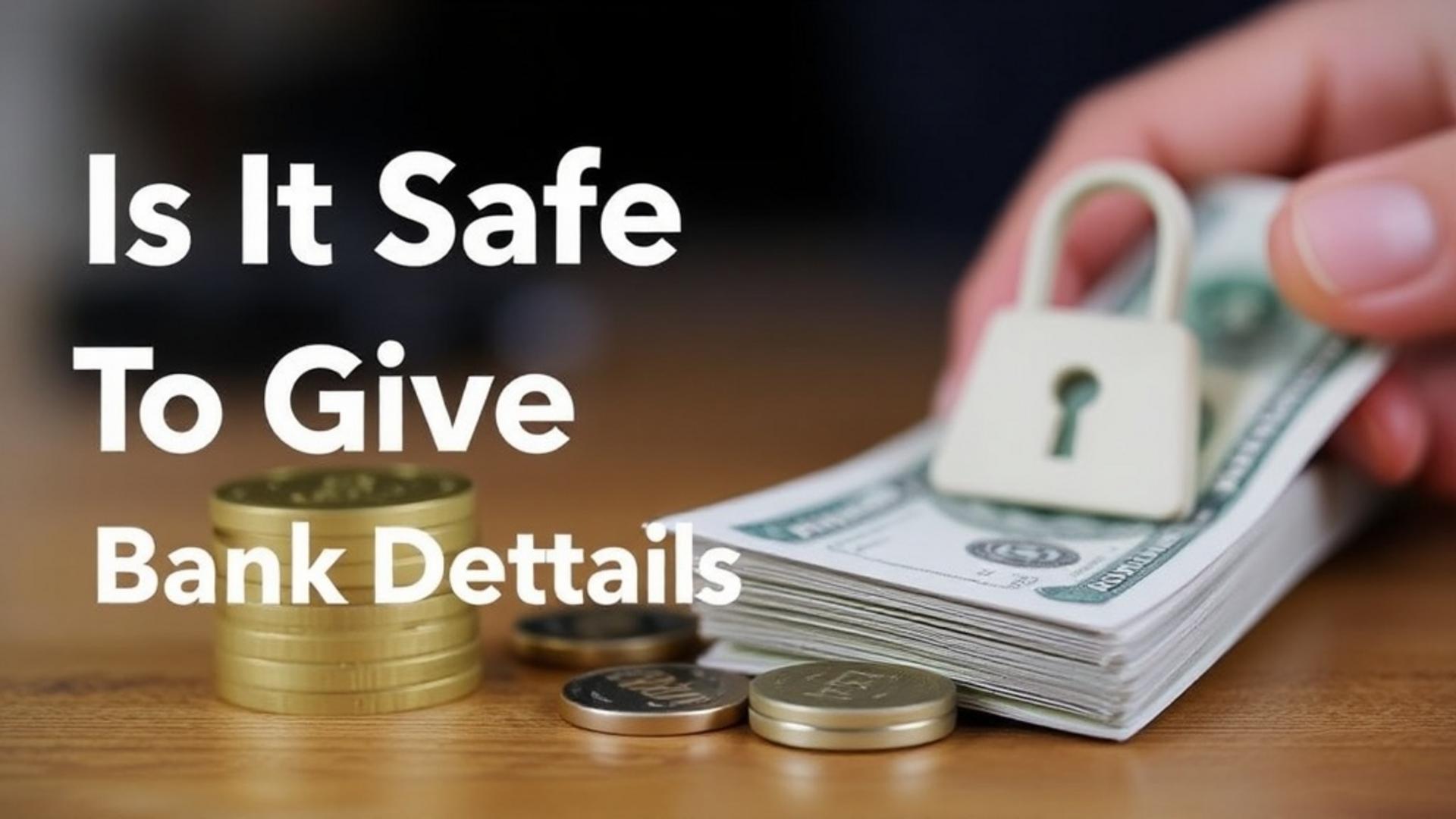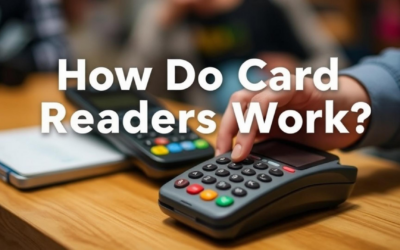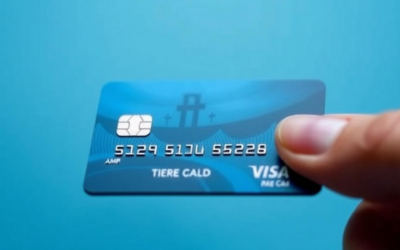How to Safely Share Your Bank Details and Avoid Fraud
These days, sharing your bank details has almost become second nature. Whether it’s for paying bills, receiving a salary, or making online purchases, we’re often asked to provide this information. But have you ever wondered just how safe is it to share these details? While sharing your bank account number may seem harmless, it’s important to understand the risks involved and how to protect yourself. This article explores when it’s okay to give out your bank details and when it’s best to keep them close.
What Are Bank Details?
Bank details are more than just numbers—they’re the key to your financial world. Typically, they include your account number, sort code, IBAN (for international transfers), and, in some cases, routing numbers. Sharing these details allows people or companies to transfer money directly into your account or set up automated payments. But not all bank information carries the same level of risk.
For instance, giving someone your account number for direct deposits is a common, low-risk practice. On the other hand, sharing sensitive information like your PIN, password, or security codes opens up much greater risks, as these are used to directly authorize transactions.
How Criminals Can Misuse Your Bank Details
Criminals have become adept at finding ways to misuse bank details. They often resort to scams like phishing or social engineering to get ahold of your information. Phishing attacks may look like legitimate emails from your bank, asking you to “confirm” your details. However, once they’ve collected enough data—like your bank account number, name, and email address—they can use it for fraudulent purposes.
For example, they might set up fake direct debits, siphoning money out of your account little by little, or they could attempt to impersonate you in a bank call to gather even more sensitive information.
That said, having your account number alone typically doesn’t give them full access to your funds. They would need additional personal details—like passwords, PINs, or even answers to security questions—to carry out more advanced fraud. This makes it critical to stay cautious about the information you share, especially online.
Is It Safe to Give Out Your Bank Account Number?
So, how risky is it to give out your bank account number? In most cases, the answer is: it depends on the situation. If you’re sharing your account number with your employer for salary deposits or providing it to a company you trust, there’s little reason to worry.
However, if someone unexpectedly asks for your details, that’s a red flag. Even though your account number isn’t usually enough for someone to steal money, it could still be exploited in combination with other stolen information.
For example, in the wrong hands, your account number could be used for unauthorized withdrawals or paired with your email and phone number to initiate fraudulent transactions. Fraudsters are creative, and they can use even basic information to impersonate you. That said, there are also low-risk situations, such as business transactions or regular payments, where giving out your account number is perfectly safe, provided you’re dealing with trusted parties.
Precautions to Take When Sharing Bank Details
While sharing your bank details is sometimes necessary, it’s important to do so safely.
- First, always use a secure method to transmit your information. For instance, encrypted email or secure financial platforms are far safer than sending details through unprotected channels like SMS or social media.
- Secondly, verify the identity of the person or company asking for your bank details. Don’t hesitate to confirm their legitimacy through direct contact, such as calling their official customer service line.
- Lastly, never share your bank information over public Wi-Fi. Public networks can be a hotbed for cybercriminals looking to intercept sensitive data. Stick to secure networks whenever you’re handling financial information.
What to Do If Your Bank Details Are Compromised
If your bank details are compromised, acting quickly is essential. Here’s what to do:
Step 1: Contact Your Bank
Immediately notify your bank if you suspect your account details have been stolen. They can freeze your account to prevent any unauthorized transactions while they investigate the issue.
Step 2: Monitor Your Account
Keep a close eye on your bank account for any unusual activity. Even small, unexpected withdrawals could indicate fraud. Set up transaction alerts to be notified of suspicious transactions in real time.
Step 3: Take Additional Precautions
Once the immediate threat has passed, it’s important to take further steps to secure your account. Change your passwords and PINs, and consider enabling multi-factor authentication for online banking. This adds an extra layer of security, making it much harder for criminals to access your funds even if they have some of your details.
By acting fast and staying vigilant, you can limit the damage and regain control of your financial security.
Additional Measures to Protect Your Bank Details
To ensure the safety of your bank details, you can take several extra precautions. Here’s a list of key security measures:
- Set up transaction alerts – Receive instant notifications for any unusual or large transactions.
- Use strong, unique passwords – Choose a mix of letters, numbers, and symbols for online banking passwords.
- Enable two-factor authentication – Add an extra layer of security by requiring a second form of verification.
- Regularly update PIN codes – Change your PIN periodically to prevent unauthorized access.
- Avoid public Wi-Fi for financial transactions – Only share bank information over secure, private networks.
- Be wary of phishing scams – Don’t click on suspicious links or share your details via unsolicited emails.
- Keep your software and apps updated – Ensure your devices are running the latest security patches.
By implementing these measures, you significantly reduce the risk of having your bank details compromised.
When Should You Consider Changing Your Bank Account Number?
In some cases, changing your bank account number might be the best way to protect your finances. If your account details have been stolen or you’ve experienced repeated fraudulent attempts, closing the compromised account and opening a new one could be the safest option. The peace of mind far outweighs the inconvenience of switching accounts it brings.
The process itself can be smooth if you’re prepared. Start by informing your bank that you’d like to close your account due to security concerns. Once your new account is set up, make sure to update any direct deposits, subscriptions, and automatic payments to avoid disruptions.
It’s also wise to notify anyone you’ve shared your bank details with about the change. Taking these steps will help you transition smoothly and ensure your finances remain secure.
Final Words
To sum it up, giving out your bank details doesn’t have to be risky, but it’s important to know when and how to share them safely. By understanding the potential threats and taking simple precautions—like using secure communication channels, monitoring your account, and enabling extra security features—you can minimize the chances of your information being misused. While sharing bank details is sometimes necessary, knowing how to protect them can save you from financial headaches down the road. Stay vigilant, stay secure, and your bank account will stay safe.
FAQs
Is there any danger in giving someone your bank details?
While sharing your bank details, like account numbers, is generally safe for common transactions, it’s important to ensure you’re sharing them with trusted individuals or companies. On their own, account numbers usually can’t give access to your funds.
Is it safe to send people bank details?
Yes, but always use secure methods. Avoid sharing your bank details over public Wi-Fi or unsecured channels like text or social media. Use encrypted emails or trusted payment platforms instead.
What is the safest way to give bank details?
The safest way to share bank details is through secure, encrypted communication methods, such as verified payment portals or encrypted emails. Always double-check the recipient’s identity to ensure the request is legitimate.
Can someone take money from a bank account with an account number?
No, an account number alone typically doesn’t allow someone to withdraw money from your account. However, if combined with other personal details, it could be used for fraud, so it’s best to be cautious.
What bank information is not safe to share?
Sensitive information like your PIN, online banking passwords, or security codes should never be shared. This data gives direct access to your account and could be misused by scammers.







